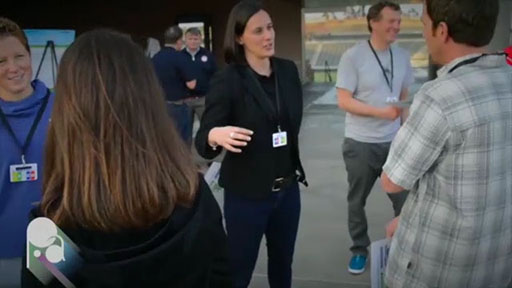5 How can personalised feedback be developed?
In the workplace, it is often easy to forget that you work with a collection of individuals with different personalities and life experiences and that these people are likely to have subtly different needs or preferences for receiving communication. Some may want a direct approach (e.g. ‘just move your weight over this way a bit further’), while others may prefer a different style such as: ‘you need to explain the reasons why you think x will help, so I can understand it better’. Others may fall somewhere in between.
Activity 5 The power of speed coaching
Watch this short video of a British coach developer working in the USA with elite sport coaches talking about a speed coaching exercise he finds highly effective in his work. How might speed coaching, or a similar exercise aimed at revealing individual communication preferences, be applied to your own situation?

Transcript
[MUSIC PLAYING]
[CONVERSING]
Discussion
If sport and fitness organisations have a genuine interest in developing people, the video suggests they need to recognise that people want to be treated as individuals and not processed as if they were all the same. Identifying each person’s preferences may take time and effort, but this may well pay off in the longer term if it results in more effective implementation of feedback and open dialogue. It is likely that relationships between people in a sport team or organisation will improve if there is some recognition of each person’s individual communication preferences.
The question posed in this section may have got you thinking about developing people in the workplace. With this in mind, one American basketball coach took personalisation to the extreme. Watch this account of his unusual pre-game routine with his players: Meet the college basketball coach with dozens of handshakes and unlimited swag [Tip: hold Ctrl and click a link to open it in a new tab. (Hide tip)] .
This is not a pragmatic workplace approach, but it does illustrate how you should strive towards what Turnnidge and Cote (2016) describe as coaches and leaders displaying genuine care and concern for people.

